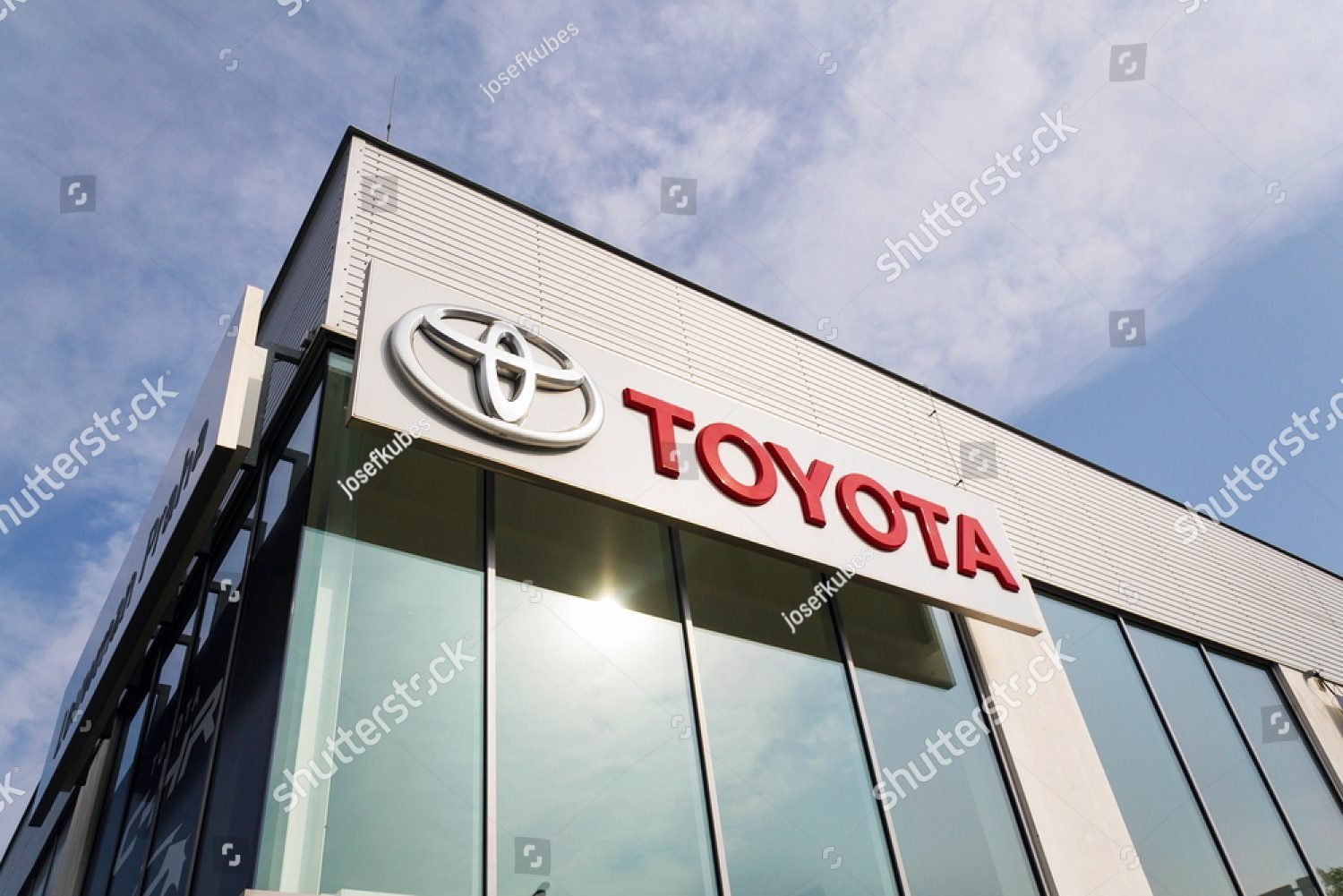In recent years, the automotive industry has witnessed a seismic shift towards electrification, driven by the pressing need to address climate change and reduce our carbon footprint. Many major automakers have jumped on the electric vehicle (EV) bandwagon, promising cleaner and greener transportation solutions. Amid this transformative landscape, one question looms large: Will Toyota, a seasoned automotive giant, bring the next EV revolution to the industry?
Toyota, renowned for pioneering hybrid technology with its Prius model, has long been a significant player in the world of sustainable mobility. However, the company has been relatively cautious in fully embracing all-electric vehicles. While other manufacturers, such as Tesla and Nissan, raced ahead with their EV offerings, Toyota seemed to be taking a more conservative approach.
The company’s hesitation to dive headfirst into the EV market was partly due to its commitment to hybrid technology and hydrogen fuel cells. Toyota’s dedication to hybrid vehicles, combining internal combustion engines with electric propulsion, paid dividends in terms of fuel efficiency and reduced emissions. This strategy garnered considerable success and helped build a reputation for reliability and eco-friendliness.
Despite their hybrid achievements, critics argue that Toyota may have been slow to grasp the urgency of an all-electric future. As governments worldwide began tightening regulations on emissions and promoting EV adoption through incentives, Toyota seemed somewhat reluctant to shift its focus entirely towards battery-powered cars. This, some critics claimed, could risk missing out on an opportunity to dominate the growing EV market.
However, recent developments suggest that Toyota is not willing to be left behind in the EV race. The company has announced ambitious plans to accelerate its electrification efforts. In line with global trends, Toyota has committed to achieving carbon neutrality by 2050, signaling a paradigm shift within the organization.
One of the factors influencing Toyota’s electrification strategy is the evolution of battery technology. Over the years, advancements in battery chemistry and manufacturing have significantly improved EV range, charging speed, and overall affordability. By leveraging these advancements, Toyota can now develop all-electric vehicles that meet customer expectations and compete effectively in the market.
Moreover, Toyota’s vast experience in automotive manufacturing and supply chain management gives it a competitive edge in scaling up EV production. The company’s well-established global network of suppliers and dealerships can facilitate a smoother transition to electric mobility compared to newer entrants.
Additionally, Toyota’s commitment to sustainability extends beyond passenger cars. The company has been exploring other avenues, such as electric trucks and commercial vehicles, where electrification can make a substantial impact on reducing emissions in various sectors.
Toyota’s late but determined entrance into the all-electric arena could prove to be a strategic move. While other automakers have gained early adopters and made a name for themselves in the EV market, they have also faced challenges in scaling up production and meeting increasing demand. Toyota, with its formidable resources and industry know-how, may have the potential to swiftly address these hurdles and emerge as a serious contender in the electric vehicle space.
Furthermore, Toyota’s loyal customer base, built over decades of delivering reliable and efficient vehicles, could be a significant advantage in the EV market. Many Toyota owners may be eager to transition to electric mobility while sticking with a brand they trust.
In conclusion, the question of whether Toyota will bring the next EV revolution to the industry remains open-ended. The company’s cautious approach to electrification, combined with its determination to achieve carbon neutrality, has set the stage for a potentially transformative journey into the electric vehicle market. Toyota’s proven track record, coupled with advancements in battery technology and a strong global presence, positions the company well for success in the burgeoning EV landscape. Only time will tell if Toyota’s electrification efforts will lead to a new era of sustainable mobility and reshape the automotive industry.
As Toyota embarks on its electrification journey, it faces several challenges that are inherent to the rapidly evolving EV landscape. One of the primary hurdles is the need to establish a robust charging infrastructure to support the growing number of electric vehicles on the roads. Unlike traditional gasoline vehicles, which can be refueled at numerous gas stations globally, charging stations for EVs are still relatively sparse in some regions.
To address this challenge, Toyota has joined forces with other automakers, utility companies, and governments to advocate for the expansion of charging infrastructure. Collaborative efforts, combined with private investments, are essential to ensure that potential EV buyers have convenient access to charging stations, thereby alleviating “range anxiety” and encouraging wider EV adoption.
Another critical aspect Toyota must address is the development of long-range electric vehicles. As consumers become more environmentally conscious, they seek EVs that not only offer low emissions but also provide ample range to meet their daily needs without frequent charging. Range anxiety remains a prevalent concern for potential buyers, and Toyota’s success in the EV market hinges on delivering compelling and practical options that align with consumers’ expectations.
Moreover, the competitive landscape in the EV market is fierce. Established players like Tesla and newer entrants such as Rivian, Lucid Motors, and NIO have already gained significant traction and have positioned themselves as formidable competitors. Toyota must strive to differentiate its EV offerings in terms of design, technology, and features while maintaining its renowned reputation for quality and reliability.
In response to these challenges, Toyota has taken strategic steps to secure its position in the EV market. The company has announced partnerships with battery manufacturers to ensure a stable supply of advanced batteries for its electric vehicles. This move is crucial as battery technology remains a key driver of EV performance, range, and affordability.
Furthermore, Toyota’s plans include a hybrid-focused approach in markets where EV adoption is still in its infancy. By offering a diverse range of vehicles, including hybrids and plug-in hybrids, Toyota aims to cater to different customer preferences while gradually increasing the share of all-electric models over time.
The success of Toyota’s EV revolution will also depend on its ability to adapt to changing consumer demands and preferences. As more people transition to electric mobility, they may seek enhanced connectivity features, autonomous driving capabilities, and sustainable materials in their vehicles. Toyota must stay attuned to these evolving trends and incorporate them into its future EV lineup.
Additionally, government policies and regulations play a crucial role in shaping the EV market. In many regions, financial incentives and emission regulations drive the adoption of electric vehicles. Toyota must actively engage with policymakers to advocate for supportive regulations and promote the adoption of sustainable transportation solutions.
In conclusion, Toyota stands at a pivotal moment in its history as it embraces the electrification revolution. While the company may have been cautious in fully committing to all-electric vehicles in the past, recent developments indicate a determined effort to accelerate its EV initiatives. With its extensive experience, global reach, and commitment to sustainability, Toyota has the potential to bring about a significant shift in the automotive industry’s landscape.
However, success in the EV market will not come without challenges. Toyota must navigate the complexities of charging infrastructure, battery technology, and a fiercely competitive market. The company’s ability to innovate, adapt, and cater to changing consumer demands will ultimately determine its success in shaping the future of electric mobility.
As the world marches towards a greener and more sustainable future, all eyes are on Toyota to see if it can seize the opportunity and lead the next EV revolution. If successful, Toyota’s legacy will be forever etched in the annals of the automotive industry, as the company that not only pioneered hybrid technology but also ushered in a new era of electric mobility for generations to come. The stage is set, the race is on, and the world eagerly watches Toyota’s electrifying journey unfold.

